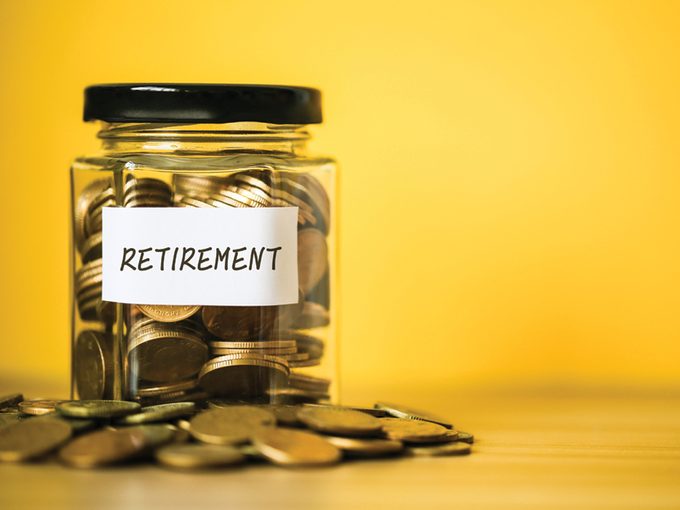Retirement and You: 5 Questions It’s Time to Ask
The earlier you start retirement planning, the better.

Whether you’re 25, 35 or 45, it’s never too early to think about your retirement goals. After all, saving for a long, meaningful retirement takes time! As you start to consider your future—or continue to work on a retirement plan that’s already in motion—keep these important questions in mind.
1. When do you hope to retire?
The first thing you’ll need to estimate is how many years you’ll require an income once you finally hang up your stethoscope, power down your laptop or close up shop. Think about at what age you’d like to retire, then use an online life expectancy calculator to estimate how many years you may expect to live. Will you be able to afford to retire when you want to?

2. What are your retirement goals?
Once you’ve considered your ideal timeline, ask yourself what you want to accomplish during your retirement.
- Do you want to jet off to hotter climates?
- Do you want to volunteer or take classes?
- Do you hope to make annual donations to a favourite charity?
- Will you have grandkids to spoil?
- Do you plan to live in your house for as long as possible or downsize to a condo or retirement community?
Some of these goals will require additional cashflow, so that’s something to consider as you make your retirement plans.
3. How much income will you need in retirement?
The dollar number you’ll need to retire will depend on several factors including your retirement date, life expectancy, lifestyle goals and any returns you’re making on your investments. A rule of thumb is to save 80 per cent of your annual pre-retirement income for each year you’ll be in retirement.
For example, if your annual income is $100,000, you plan to retire at 65 and your life expectancy is 90, you will need 80 per cent of $100,000 (a.k.a. $80,000) for 25 years. That’s $2,000,000 that you’ll need to live on throughout your retirement.

4. Have you considered taxes, too?
Tax rates and credits can become complicated if you have multiple retirement fund sources (e.g. Canada Pension Plan (CPP), Registered Retirement Savings Plan (RRSP), private pensions through your employer, money from a monetized hobby, inheritance and so on) that act as your income. Just know that retiring doesn’t suddenly make you tax exempt.
5. Other than personal retirement savings, what sources of income can I count on in retirement?
There are two main sources of income that have been put in place by the Canadian government: the Canada Pension Plan (CPP) and Old Age Security (OAS).
CPP
- To qualify for the CPP, you must be at least 60 years old and have made valid contributions. (If you’re over 18 and work in Canada outside of Quebec, you are obligated to make contributions if you make more than $3,500 per year.) You can delay taking payouts up until age 70. The longer you delay, the larger your monthly payouts will be.
- As of September 30, 2022, the CPP Fund totaled $529 billion.
- According to the latest review by the Office of the Chief Actuary of Canada, the Fund will be sustainable for at least the next 75 years.
- CPP Investments, a professional investment management organization that operates at arm’s length from federal or provincial governments, is in charge of investing the assets of the Fund that aren’t needed to pay current benefits.
- CPP Investments diversifies the assets across public and private equities, real estate, infrastructure and more, and between 2012 and 2022, CPP Investments’ active management helped the CPP Fund achieve an average annual return of 10.1 per cent.
- The Fund is built to withstand uncertain, pressure-filled times.
OAS
- At age 65, you become eligible for OAS if you have lived in Canada for at least 10 years since you were 18. (To receive the full pension amount, you need to have lived in Canada for at least 40 years after age 18.)
- The OAS pension is funded by government revenue, so no one pays directly into it.
- If you have an income above a certain threshold, your OAS payouts may be reduced. For example, if you are collecting OAS and your net world income was over $81,761 in 2022, you will have to pay a “recovery tax” for every dollar over $81,761 for the period from July 2023 to July 2024.

Since the CPP and OAS are designed to supplement personal savings, it’s important to think about other streams of income as you plan for the (potentially many) years you’ll be retired.
CPP Investments is a professional investment management organization that invests the net contributions of the Canada Pension Plan. Canadians can be confident that CPP Investments is working to safeguard and grow the money that they, and their employers, contribute to the Canada Pension Plan. To learn more about the state of the CPP Fund, visit cppinvestments.com.




